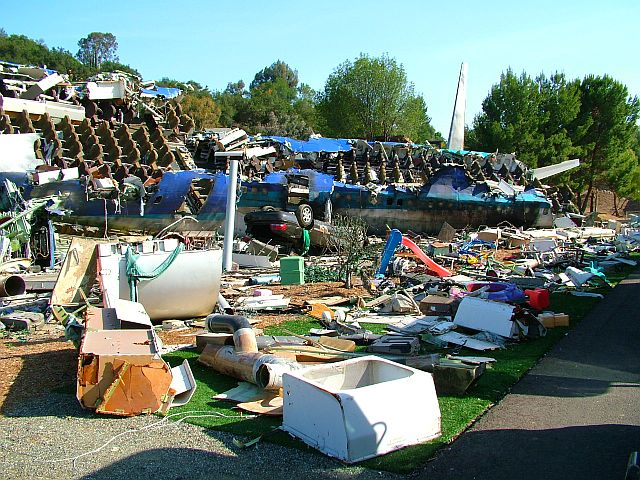Rear Facing Seats in Airplanes, Safer?
by Liv | Published on May 13th, 2007, 9:50 am | Travel
That's whats been suggested by some. That safety on airplanes could be improved, even dramatically, except that Americans are too scared to fly backwards. What might effect one's own personal comfort level has arguably been suggested to decrease the number of deaths in a emergency landing situation. The idea that the the body's energy of forward motion would be distributed by the seat back, rather than waist seat-belt, makes sense to many. Children in vehicles now ride in rear-facing child seats, and military aircraft have adapted this seating arrangement for years. So why are commercial airliners and passengers so committed to front-facing seats? Would you ride in a rear-facing aircraft?
It began in 1945 with with the UK unofficially adopting rear-facing seats in their military aircraft's. By 1958 the US Air Force released conclusive studies indicating forward-facing passengers were seven times more likely to suffer injuries than aft-facing passengers. In 1988 the FAA came to the same conclusion, and by 1994 The Japanese Aviation bureau concluded it's 5 year research that that aft-facing seats provide "the most effective crash impact alleviation."
Despite this information, most airlines play-down or argue any increase in safety from rear-facing seats. But the bottom line is really about money. Aft-facing seats require stronger - and consequently heavier - seat backs and floor attachments. As Southwest, the only airline to experiment with backwards seats, discovered through a cost analysis, the increase in weight would not only hurt fuel efficiency but also would force airlines to reduce the number of seats on their planes. That means the FAA must determine how much a change would cost the industry and weigh it against human life. For the purpose of comparison, the FAA considers a human life to be worth $2.2 million.
I guess the biggest question is whether or not it all really matters. In the case of an airplane crash, most if not all people are going to die anyways. They used to suggest on aircraft that a airplane could land in the water, and you would be given a safety speech about your seat being used as a flotation device. Today most airlines, and passengers recognize there has never been a successful water landing of a commercial aircraft except for failed take-offs and landings. The idea that if something goes wrong at 30,000 feet in the air, and that some seating arrangement, or seat cushion is going to save you is nothing more than the airline's mental brainwashing to make you think your safe. Bottom line, your going to die.


 -
-
